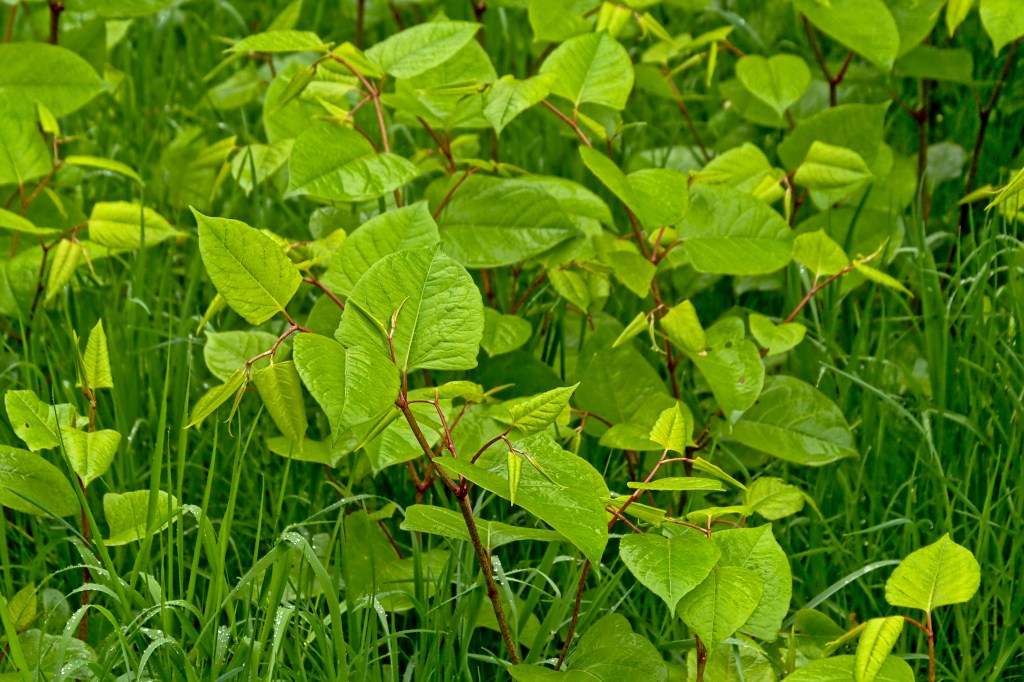This can be a pest that you cannot eliminate.
An invasive, non-native plant species has grown and spread, posing a threat to landscaped yards and even home foundations throughout the American Midwest, Northwest, and Northeast.
Japanese knotweed is a shrubby plant that was brought to the U.S. in the 1800s, according to The Wall Street Journal, and while its summertime blooms are stunning, it’s just a mirage that hides the havoc it wreaks.
With the ability to grow three feet a week, infestations of the nearby plant — which have stems that look like bamboo, according to CNY News — are quick and nearly impossible to eradicate, appearing in cracks and crevices. of concrete or asphalt just when you think you’ve beaten it.
Robert Naczi, curator of North American botany at the New York Botanical Garden, told the Journal that an entire plant can grow from just a small part of the root, thriving in almost any condition.
“You have to respect this plant,” said Naczi. “They are known to grow inches a day in the spring.”
The plant is known to grow up to 15 meters.
Across the pond, UK homeowners must disclose whether Japanese knotweed has taken root on the property when they sell the home, with the potential to be prosecuted if it spreads, according to the Journal. There is also knotweed insurance for regular maintenance, although it is still a detriment to their home values.
The Daily Mail reports that there are now fears the plant “threatens to catastrophically devalue homes” in areas of the US where it can grow.

A couple in Maine detailed in the Journal their painstaking efforts to rid their new home of the knot, and that, even years later, it still hasn’t gone away.
There are various methods to curb the plant or kill it altogether — such as routine mowing or digging up the roots, according to the Journal. Other experts may advise cutting the plant when it blooms and injecting it with herbicide, although a pesticide expert is recommended.
Researchers have discovered a special type of bug – Aphalara itadori – which is known to eat Japanese knotweed.
In 2020, scientists from the University of Massachusetts at Amherst were allowed to release them and monitor their effects, revealing that they are successfully making a dent in the giant knot population, although it is unclear how the creatures will affect Japanese knots.
“I’ve never been so excited to see a plant in pain before,” Jeremy Andersen, a research assistant professor who is part of the university’s team, told the Journal.
“They looked as if their vital essence had been sucked out of them.”
#Invasive #fastgrowing #plant #threatens #homes #property #prices #spreads
Image Source : nypost.com